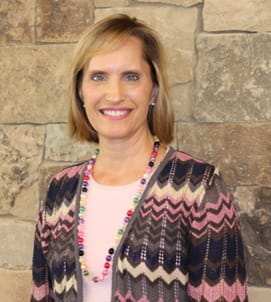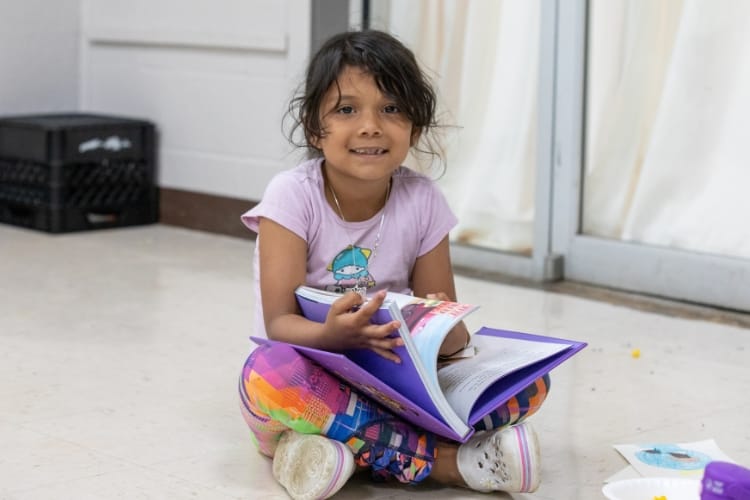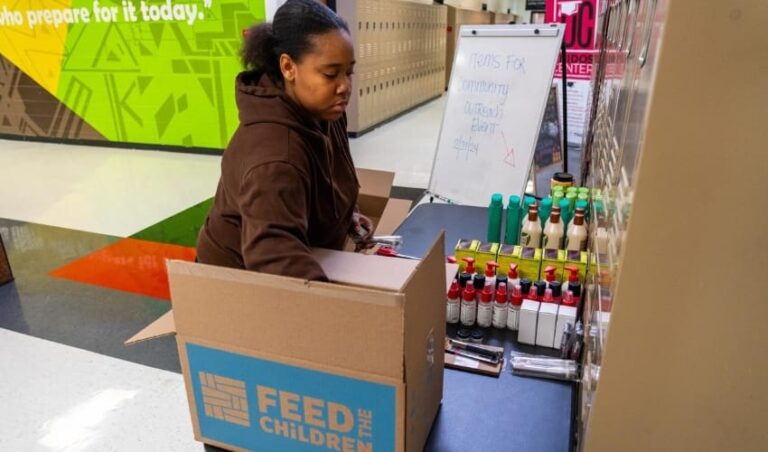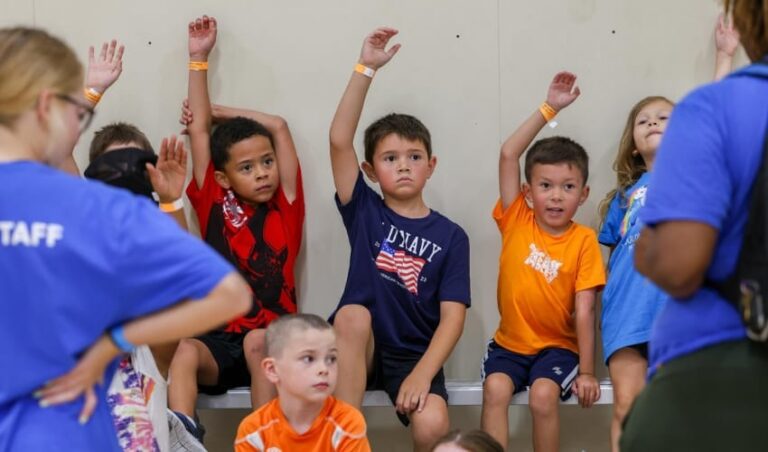
An Expert’s Take: Meet Rondia
Feed the Children recently launched a pilot program in Oklahoma City called Summer Feed and Read, in partnership with the Metropolitan Library System. We talked with Rondia Banks, a long-time librarian at one of the library system’s locations and learned about her passion for literacy and why food plays an important role in learning.

1. First, tell us about yourself. How long have you been a librarian? Why did you become a librarian? What is your favorite part about the job?
I started working in a library during my freshmen year of college. The job was a student aide work assignment. I fell in love with libraries at that time.
I have worked for this library system for over 23 years. I have worked as a Children’s Librarian and a supervisor. Today I am Manager of the Bethany Library.
My favorite part of my job is connecting people with information and watching them gain knowledge. It starts with the children in Story Time — watching the joy on their faces as they sing songs and listen to stories, and teaching parents and caregivers how to instill the love of reading into their children.
It then moves on to helping children who are in school practice their reading. As the students move up in school, they come in seeking facts for research papers. I get to learn new information every day by helping them find fun facts.
I love reaching people where they are.
2. What is the impact of summer reading?
Summer reading and learning impacts our community in so many ways – it helps kids keep up with a learning practice during the summer months, which reduces what we call the “summer slide.” Studies show that kids who don’t read during the summer months can really struggle once school is back in session. In fact, not reading during the summer can cause kids to read up to two years behind their peers when school starts again this fall.
Modeling good reading habits is another great impact of summer reading and learning. Kids who grow up seeing their parents and caregivers, family members and friends reading learn how to be readers themselves. Kids who grow up with memories of going to the library become library users also!
3. How can parents or caregivers encourage learning in the summer (particularly if they’re on a budget and don’t have access to camps or lessons)?
This is where the library really stands out! All of our summer reading programs are totally free to participate in and enjoy. We have 19 locations throughout Oklahoma County. Each one will have their own programs and projects, and it’s easy to make a fun day visiting libraries into a big adventure!
4. Give some tips on how to fit in learning during the summer, especially for parents who are short on time.
(Every summer for more than 80 years, the Metropolitan Library System in the Oklahoma City metro area has offered a Summer Reading program.)
We encourage everyone who signs up for the program to earn 600 points throughout June and July to complete it. A minute of reading counts as a point. 600 points and/or minutes might sound like a lot, but it’s really only 20 minutes a day.
For families on the go, I suggest audiobooks – if you take a two-hour road trip and listen to an audiobook the whole way, everyone in the car can add 120 points (minutes) to their log. One long family vacation can be enough for families to earn all of their points. Plus, listening to books as a family is a great way to spark conversations. Librarians are happy to help suggest audiobooks that appeal to multiple age groups
Parents who read out loud to their kids can count the minutes for anyone who’s reading or listening. Attending programs to earn points as a group is another good way to get points for everyone all at once.

5. Can you share some stories of positive outcomes from summer reading?
No matter what time of year it is, we have lots of children in the library, after school and usually all day long in the summer. I like to take “brain breaks” where I will get out of the manager’s office and go play a game with the kids. One young man loves to play board games with me. I have encouraged him to read one book to me before each game we play. This summer he completed his 600 minutes and received his summer reading prize! But he still wants to read. His goal is to read over a million minutes before he has to go back to school. Yesterday he asked me what I do here at the library. I told him I was the manager. He said, “I want to be a manager just like you.” This statement is the highlight of my year! When children can see themselves in a career, then we have insured success for our future generations. It all starts with reading.
6. Why are programs like Summer Feed & Read important?
School serves as such a support network for families during the school year – families know that their kids can get breakfast and lunch there. But during the summer, that often goes away. Combined with not having the structure from school, this can cause challenges for the whole family. The Summer Feed and Read program builds back some structure and nourishes both body and mind. Some of the library locations provide lunch and snacks. Sadly, not all children have access to their local library, so it is beneficial for organizations like Feed the Children, churches, community centers, YMCAs and the Library System to partner together to bring food and reading into neighborhoods where children live.
7. Why is it critical to combine food with learning?
Who can learn on an empty stomach? Kids need nutritious meals to grow into healthy adults; they also need learning experiences to grow their brains into adulthood. Summer Feed and Read is a lifeline for many families, and the Metropolitan Library System is so happy to be able to play a role in helping this program succeed.






